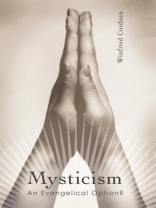Mysticism is a controversial topic that all too frequently receives one-sided coverage. On the one hand there are many enthusiasts who are willing to defend mysticism at almost any cost, including sacrificing logical and theological integrity. On the other hand there are philosophers and theologians who see mysticism as not much more than an evil to be stamped out. This book takes a careful look at the philosophical and theological questions involved and attempts to locate a modest place for mysticism within a genuine evangelical framework.
Questions addressed in this book include such matters as: Is mysticism a perennial philosophy that appears in different guises but is always the same underneath? Can we argue for an objective reality behind all mystical experience? How can we understand the fact that mystics talk about something that they say is beyond language? How has mysticism shown up in various Christian traditions? Can we reconcile mysticism with the New Testament?
The conclusion of this book is based on an understanding of mysticism as an unmediated link to an absolute. In that sense there is a form of mysticism taught in the New Testament, but it is a mysticism that does not require ecstatic experience and does not constitute a separate source of revelation. Nevertheless, this New Testament mysticism describes an integral part of biblical spirituality.
Yazar hakkında
Winfried Corduan, Professor of Philosophy and Religion at Taylor University, is the author of several books including Handmaid to Theology: An Essay in Philosophical Prolegomena , A Tapestry of Faiths, /i> and Mysticism: An Evangelical Option?.







![Örtmek Brian Schrag & Julisa Rowe: Community Arts for God's Purposes [Chinese] 貼近神心意的社群藝術 Örtmek Brian Schrag & Julisa Rowe: Community Arts for God's Purposes [Chinese] 貼近神心意的社群藝術](https://static.worldofdigitals.com/thumb_webp/740/9781645083740.webp)




